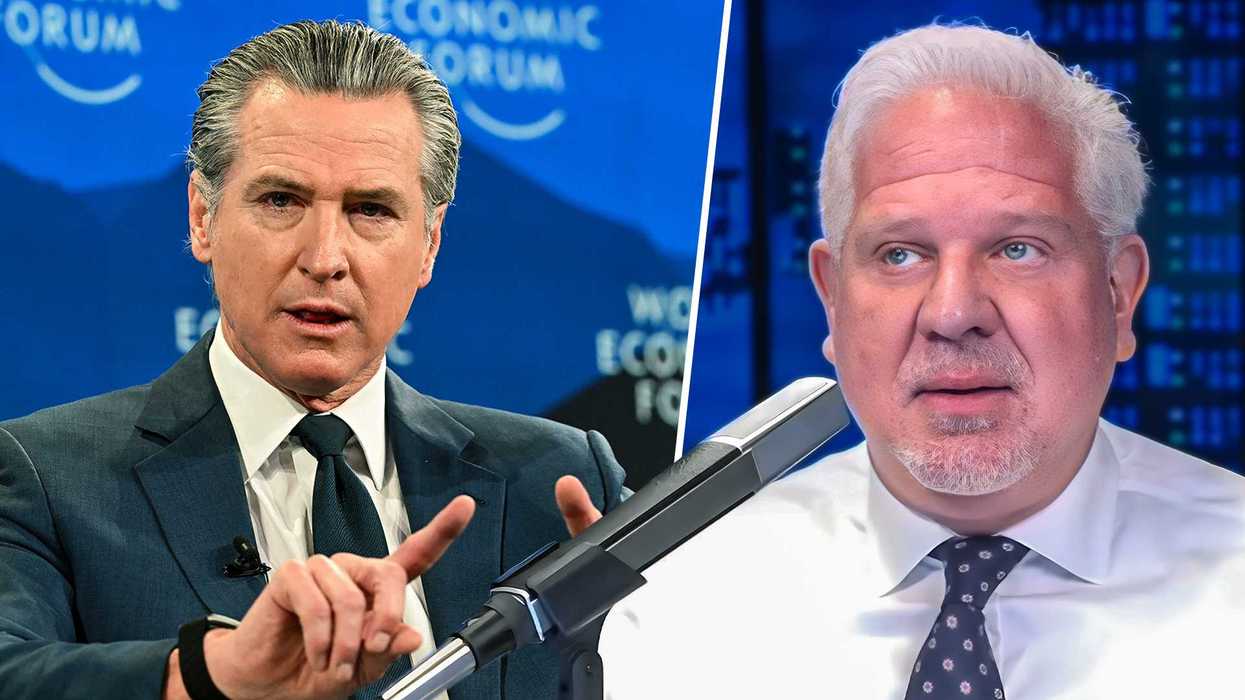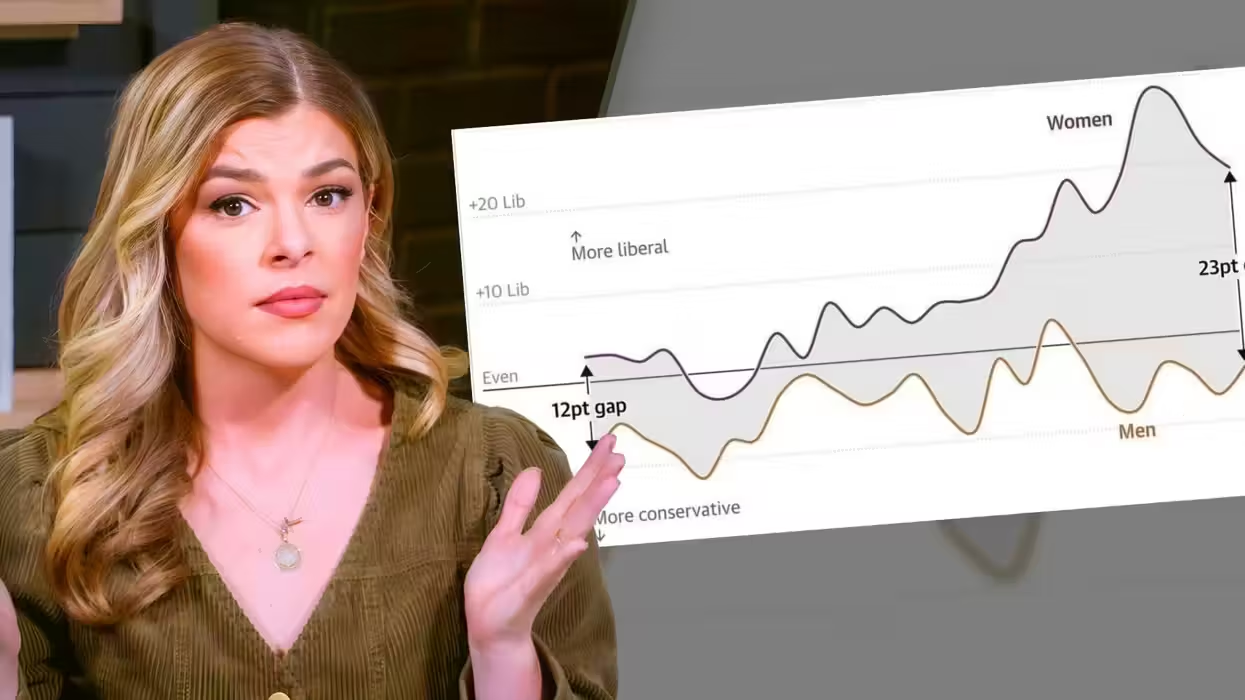President Donald Trump, in fulfilling what was one of his most consequential campaign promises, said earlier this month that his administration is “preparing to repeal and replace Obamacare" by the end of March.
“Obamacare is a disaster folks, it’s a disaster. We’re doing Obamacare. We’re in the final stages. So we will be submitting sometime in early March, mid-March," Trump told reporters Feb. 16 during his first solo White House news conference.
But the task ahead is a daunting challenge, as Republicans on Capitol Hill are reportedly "grappling" with what a new plan might entail.
Michael Cannon, director of health policy studies at the Cato Institute, a libertarian think tank in Washington, D.C., told TheBlaze during an exclusive interview Thursday that Republicans are not only "grappling" with the issue, but that they are also "confused" about what Senate rules will allow them to repeal, having just a simple majority.
"There's a lot of confusion about Senate rules regarding what they have the votes to do about whether the plan they're talking about right now would actually repeal Obamacare or just sort of rename it," Cannon said. "I believe the House is operating under this presumption the Senate requires 60 votes to repeal the ACA's regulations so the House is proceeding under the assumption they won't be able to repeal those regulations."
Cannon cited House Speaker Paul Ryan's plan, which he called "Obamacare lite." But, as Cannon noted, he isn't the only one calling it that.
“I would say that the Republican establishment position is that they’re going to keep parts of Obamacare. I don’t think Obamacare lite is what we should do,” Sen. Rand Paul (R-Ky.) said during a Feb. 15 interview with Fox News host Neil Cavuto.
Idaho Republican Rep. Raul Labrador used the same phrase while referring to top Republicans' reported plan to replace the health care overhaul.
"I'm hearing a lot of members say that they want Obamacare lite," Labrador said Jan. 31 during a Bloomberg interview.
"That's not what we promised the American people. I’m very concerned about the things I’m hearing in the conference because they’re different than the things I’ve heard over the last six years," Labrador added.
Cannon said that Republican leadership is discussing keeping in place "core provisions" of Obamacare, such as requiring everyone in a particular insurance pool to pay the same premium regardless of the individual risk they pose, taxpayer subsidies for health care insurers and perhaps even the individual mandate that requires all Americans to buy health insurance or pay a penalty.
Cannon said that Republicans wouldn't impose a penalty on uninsured Americans exactly how Obamacare does but that, instead, tax credits would be offered to the millions of insured Americans while uninsured Americans would be ineligible for the same credits. That, according to Cannon, is the "same sort of financial penalty" as is imposed under the current law.
But what Republicans are planning, Cannon said, is to get rid of many of the Obamacare taxes, such as taxes on premiums, certain medical devices, health insurance companies and high earners who receive Medicare. Those sources of revenue could all be gone if top Republicans have their way.
But Cannon said that model likely won't work if Republicans end up keeping many of the subsidies and tax credits.
"So I don't think that approach really has legs. I think they're going to try that until they realize that doesn't work," Cannon told TheBlaze.
Sen. Bill Cassidy (R-La.) agreed. During an interview with The Hill back in December, he said, “There needs to be some source of revenue."
Cannon pointed to a Congressional Budget Office analysis from last year, when Republicans were attempting to repeal Obamacare, which found that repealing mandates and subsidies in Obamacare without getting rid of its regulations could have catastrophic effects.
"It would essentially destroy the individual market," Cannon said.
On the other hand, if Republicans do decide to keep Obamacare's taxes to pay for the credits and subsidies, it could very well be political suicide.
For six years, Republicans campaigned on repealing Obamacare. In 2014, after taking back control of both the House and Senate, Republicans made multiple attempts to repeal what many consider to be former President Barack Obama's signature domestic achievement. All of this, not to mention the numerous promises Trump made throughout the 2016 election cycle to "repeal and replace" Obamacare "on day one."
And to add insult to injury for Republicans, at least one recent poll suggested that a growing number of Americans oppose repealing Obamacare.
A Politico/Morning Consult poll released before Trump took office in January found that just 41 percent of voters approved of Obamacare, while a majority — 52 percent — disapproved. Now, only one month into Trump's presidency, the same poll conducted a second time found that the country is evenly divided, with 45 percent saying they approve of Obamacare and 45 percent saying they disapprove.
The recent uptick in public support, however, hasn't stopped a number of other Republicans from continuing to advocate for the law's repeal.
“It’s going to happen,” Rep. Michael Burgess of Texas told the Daily Signal Thursday. "What [the 2015 bill] demonstrated to me was that if you got the right president in the White House, you could send that bill back down to the other end of Pennsylvania Avenue, and you could repeal large pieces of the Affordable Care Act.”
Burgess was referring to a bill, passed by both the House and Senate last year, which Obama later vetoed. The legislation aimed to repeal parts of Obamacare, including Medicaid expansion, the medical device tax and the so-called "Cadillac tax" for expensive plans, according to Politico.
Tim Phillips, president of the conservative group Americans for Prosperity, also said Republicans would be mistaken to go back on their promise.
"Obamacare repeal has been litigated in four consecutive national elections, and the result has been the most devastating losses for the Democratic Party since the 1920s. The greatest peril for Republicans in Congress will be if they break their word," Phillips said, according to Real Clear Politics.
FreedomWorks, another conservative grassroots organization, is slated to hold a rally March 15 in Washington, D.C. where they will urge lawmakers to keep their campaign promises. Texas Republican Sen. Ted Cruz is scheduled to attend that event.
Will conservatives' attempts to remind Republican lawmakers of their repeated promises to repeal and replace Obamacare actually work, though?
It might, Cannon told TheBlaze, "but it looks like Republicans are determined to exhaust every alternative first."







